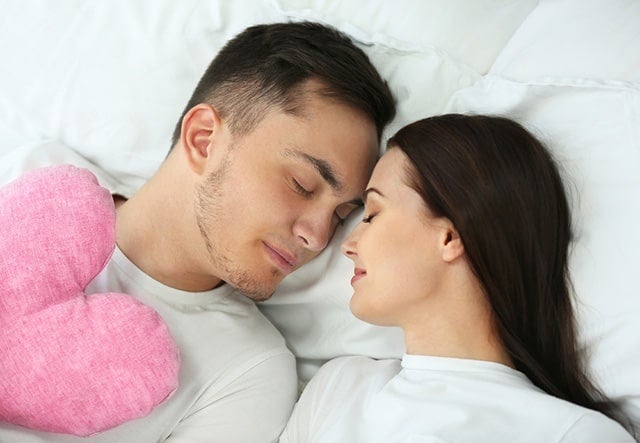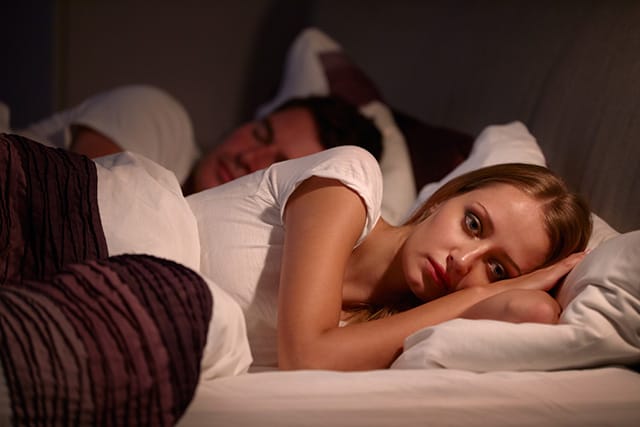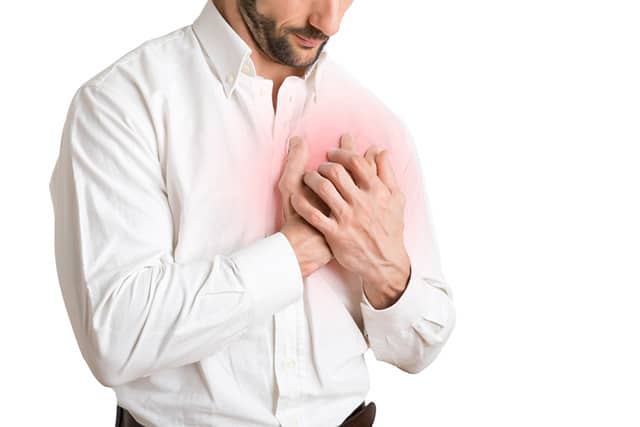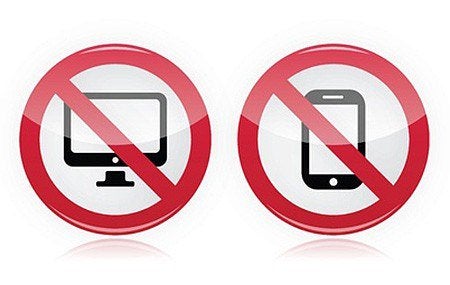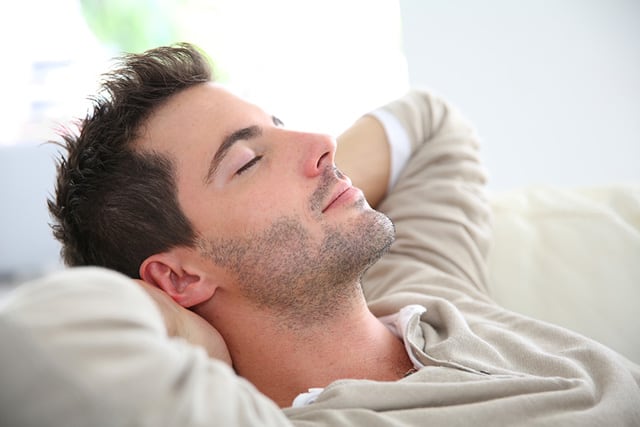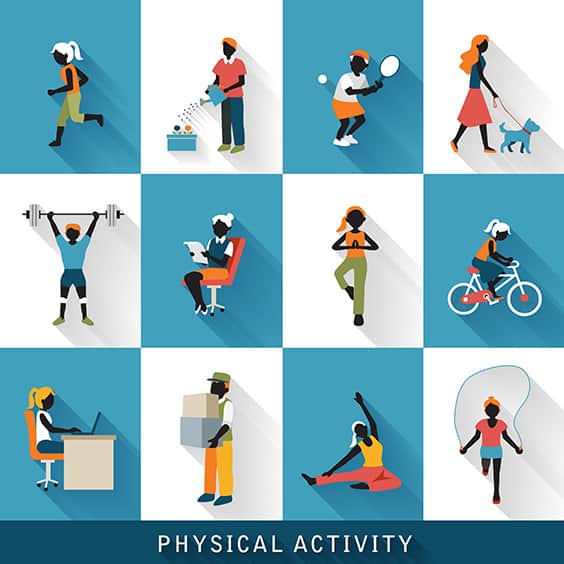Did you know that sleep can be directly linked to your heart health? One study showed that out of 3,000 adults over the age of 45, those who slept fewer than six hours per night had a twice as likely chance of having a stroke or heart attack than those who slept six to eight hours per night. It’s hard to really understand how sleeping less can greatly affect your heart, but researchers have said that it can cause disruptions in underlying health conditions and biological processes.
It’s also been said that lacking sleep in the earlier stages of life can have an impact on your later heart health as well. It’s important to understand that at no matter what age you are, lack of sleep can lead to some pretty scary heart issues.
You may want to read: Connection between weight loss and sleep
1. The Heart Function
Your heart is a vital organ that pumps blood throughout your body through the circulatory system. It supplies oxygen and nutrients to your tissues, removing carbon dioxide and other wastes. Since your heart is a muscle, it needs a fresh supply of oxygen and nutrients.
The Pathways
The heart circulates blood through two paths-the system circuit and the pulmonary circuit. When blood is circulated through the system circuit, the oxygenated blood leaves the body through the left ventricle to the aorta. From there, it goes to the arteries and capillaries, supplying your tissues with oxygen. The deoxygenated blood will then return through the veins to the canea cavae and re-entering the right atrium.
The other pathway-the pulmonary circuit-consists of deoxygenated blood that leaves the right ventricle through the pulmonary artery, which then travels to the lungs. It will then return as oxygenated blood to the left atrium through the pulmonary veins.
Important Role Of The Arteries
There are two sets of arteries that feed oxygenated blood to your heart-the right coronary artery & the left main anterior descending artery and the left circumflex artery. If any of these arteries become blocked, it can result in a heart attack or damage to the muscle of the heart. It’s things like lack of sleep that can result in other underlying issues to cause a bigger problem with the heart or the arteries within the heart.
You may be interested in: Best Heart Rate Monitors
2. How Sleep Affects Your Heart
Sleep is an extremely important part of life. When you sleep, your entire body has a chance to slow down and reset itself. Sleeping restores energy, releases the proper hormones, slows your breathing, relaxes muscles, increases blood supply, promotes tissue growth and repair and drops blood pressure. If you aren’t getting enough sleep, your body isn’t going to go through these natural processes-affecting your heart-and here’s how.
Insomnia
Insomnia, sometimes confused with Delayed Sleep Phase Disorder (DPSD), consists of very long sleepless nights that can cause a wide array of problems during the day. You may experience trouble concentrating, irritability, high blood pressure, increased stress hormones, lack of energy and a faster heart rate. All of these things are risk factors for heart failure.
In a study conducted in 2013, researchers at the Norwegian University of Science and Technology studies the direct link between insomnia symptoms and cardiovascular risk factors. There were 54,279 men and women ages 20 to 89 studied over the course of 11 years. During that time, 1,412 individuals were diagnosed with heart failure.
Participants who showed three or more symptoms of insomnia were linked to a threefold increased risk of heart failure. There’s no proof that insomnia causes heart failure directly, but there is significant findings that show it can have some sort of effect on the heart.
How Long You Sleep Matters
The ideal sleep duration is between seven to eight hours per night. Short sleepers, aka the 20 to 30 percent of people who only get six hours or less of sleep, are at a greater risk for bad health outcomes including the risk for obesity, heart disease and diabetes. Those who sleep longer than 9 hours per night have risk as well, but it’s not as great.
Researchers from the United Kingdom and Italy published a study in the journal called “Sleep” that showed both long and short sleep durations and predicted death among participants from 16 studies. It was said that short sleepers had a 12% greater risk of death than those who slept for the recommended time each night. Long sleepers had a 30% higher risk for dying. When it came to short sleepers, the cause of death was coronary artery calcification.
Sure, there are going to be some days when sleeping for those recommended hours aren’t going to happen, but it doesn’t mean that you’re going to drop dead from a heart attack or stroke. You just need to watch how long you sleep or don’t sleep for because short sleepers also have the risk of poor metabolism, which leads to overeating. This can lead to high blood pressure and high cholesterol, which can take a toll on the function of the heart.
Sleep Apnea
Sleep apnea is a disorder that causes the individual to take shallow breaths or pause breathing for up to 30 times per hour during sleep. This is a known risk factor for heart disease according to the UCLA Sleep Disorders Center. These pauses are particularly dangerous because the heart can sense a reduction in oxygen in the blood pressure. The body will then take the extra steps needed to increase the heart rate, oxygen level and blood pressure. If the heart has to repeat this over and over, it increases the risk for cardiovascular disease and high blood pressure. This shows that sleep and your heart rate are directly related and if it’s a little out of whack, it can cause some major problems.
3. Can Lack Of Sleep Cause Heart Palpitations?
Heart palpitations are skipped beats, extra beats, or pauses in beats. It can also be fluttering in the chest and a flip-flopping sensation. It is caused by the disruption of the normal electrical activity or function of your heart. They are a common occurrence in those who suffer from anxiety, high levels of stress, those who lack sleep, have too much caffeine or too much exercise. It can also be a sign of heart disease or some other disease the can affect the heart or other parts of the body.
Since a lot of heart problems can be caused by stress and anxiety, it is certainly possible that sleep deprivation can cause heart palpitations or heart racing. The less you sleep, the more anxious and nervy you get, leading to these palpitations. Also, if you suffer from atrial fibrillation, it causes palpitations. Lacking sleep can also affect this condition, making it worse.
What Is A Normal Heart Rate When Sleeping?
This is a very common question a lot of people have when they think there’s something wrong with their ticker. A normal heart rate when sleeping is between 60 and 100 beats per minute. If you are a trained athlete, it can stand between 40 and 60 beats per minute.
If you aren’t sure how to determine your heart rate, it’s rather simple to learn. Check out this video for a step by step on how to check your pulse. Your resting heart rate can predict your longevity and cardiovascular health.
Resting Heart Rate: 60-100 beats per minute
Tachycardic Heart Rate (too fast) : Over 100 beats per minute
Bradycardic Heart Rate (too slow) : Less than 60 beats per minute
You may want to read: Sleeping Heart Rate
4. Getting More Sleep
Other than getting yourself a new mattress, the obvious way to make you more comfortable for sleeping, there are a few other tips and tricks you can use to get more shuteye.
Power Everything Down:
Shut off all electronics that may hurt your sleep pattern at least one hour before bedtime. If your body sees light, it thinks it’s time to wake up, leading to lack of melatonin production.
Do Not Nap!:
Napping for too long or too much during the day can disrupt your natural sleep and wake cycle. If you absolutely feel like you need to nap, here’s how to properly do it.
Stick To A Sleep Schedule:
Go to bed and get up at the same time every day the best you possibly can. If you don’t fall asleep within 20 minutes, get out of bed and do something relaxing then try again.
Be Active:
Regular physical activity can promote better sleep. However, don’t be too active right before bed. Try to do it a few hours beforehand.
Calm Down:
You can’t sleep if your mind is wandering and thinking about silly stuff. Try to resolve your issues and worries before bedtime. Jot them down and set them aside for another day.
Create A Restful Environment:
If it’s too hot or too cold in your room, you aren’t going to sleep as well as you should. Your room should be dark, cool and quiet. If you need sound, try using a noise machine. You can also use darkening shades to keep light out and you can also try taking a nice warm bath and using relaxation techniques to help you wind down.
Contact Your Health Care Provider:
If you think that you might have a problem with sleep, it’s best that you contact your health care provider so that they can further assist you and figure out why you can’t sleep.
You may want to read: Some Solutions to Help You Sleep
Conclusion
As you can see from all of the supported evidence above, sleep can be directly related to heart health. If you aren’t getting enough of it and even if you are getting too much, it has an effect. It’s best that you try to use some of the techniques I talked about to get you in the sleeping mood. Getting more sleep, and relaxing more, can even help you boost productivity in addition to cardiovascular well-being. If none of that helps, contact your doctor. You may have a serious underlying health issue that is causing you to not sleep well.
